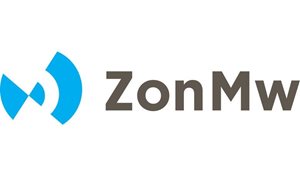11 December 2019
Mounting an effective immune response relies critically on the coordinated interactions between adaptive and innate compartments. How and where immune cells from these different compartments interact is still poorly understood. They demonstrated that the cross-talk between invariant natural killer T cells (iNKT) and CD8+ T cells in the spleen, essential for initiating productive immune responses, is biphasic and occurs at 2 distinct sites. Codelivery of antigen and adjuvant to antigen-presenting cells results in: 1) initial short-lived interactions (0 to 6 h), between CD8+ T cells, dendritic cells (DCs), and iNKT cells recruited outside the white pulp; 2) followed by long-lasting contacts (12 to 24 h) between iNKT cells, DCs, and CD8+ T cells occurring in a 3-way interaction profile within the white pulp. Both CXCR3 and CCR4 are essential to orchestrate this highly dynamic process and play nonredundant in T cell memory generation. While CXCR3 promotes memory T cells, CCR4 supports short-lived effector cell generation.

Mounting an effective immune response relies critically on the coordinated interactions between adaptive and innate compartments. How and where immune cells from these different compartments interact is still poorly understood. They demonstrated that the cross-talk between invariant natural killer T cells (iNKT) and CD8+ T cells in the spleen, essential for initiating productive immune responses, is biphasic and occurs at 2 distinct sites. Codelivery of antigen and adjuvant to antigen-presenting cells results in: 1) initial short-lived interactions (0 to 6 h), between CD8+ T cells, dendritic cells (DCs), and iNKT cells recruited outside the white pulp; 2) followed by long-lasting contacts (12 to 24 h) between iNKT cells, DCs, and CD8+ T cells occurring in a 3-way interaction profile within the white pulp. Both CXCR3 and CCR4 are essential to orchestrate this highly dynamic process and play nonredundant in T cell memory generation. While CXCR3 promotes memory T cells, CCR4 supports short-lived effector cell generation.
Related news items

ZonMw Open Competition Grant for Annemiek van Spriel and Piet Gros
15 June 2021 Annemiek van Spriel, theme cancer development and immune defense, together with Piet Gros, Dept. of Chemistry, Utrecht University obtained a ZonMw Open Competition Grant to investigate IL-6 receptor structure and signalling in tumor cells. read more
HFSP Grant for Johannes Textor
30 March 2020 Johannes Textor, theme Cancer development and immune defense, has been awarded a program grant of 1 million US dollars by The Human Frontier Science Program (HFSP) to investigate how T cells navigate extremely dense environments using experiments, modeling and methods from pedestrian dynamics. read more
Human pDCs attract cytolytic lymphocytes in anti-cancer vaccination
6 February 2020RIMLS researchers Jasper van Beek and Jolanda de Vries, theme Cancer development and immune defense, discovered that pDCs can efficiently recruit cytolytic immune effector cells, a property that could be exploited in anti-cancer vaccines. They have published these findings in Cell Reports.
read more
ZonMw funding for teams of Michiel Vermeulen and Jolanda de Vries
4 February 2020The awarded research projects of RIMLS researchers Michiel Vermeulen, Jolanda de Vries, Gerty Schreibelt and Martijn Verdoes and colleagues will initiate new research lines and collaborations between various research groups.
read more
Niels Stensen Fellowship for Jorieke Weiden
6 January 2020 Jorieke Weiden was recently awarded a grant from the Niels Stensen Fellowship. Since the 1960s, the Niels Stensen Fellowship has been awarded annually to outstanding researchers who recently received their PhD to enable them to gain research experience at a top university or institute abroad. read more
